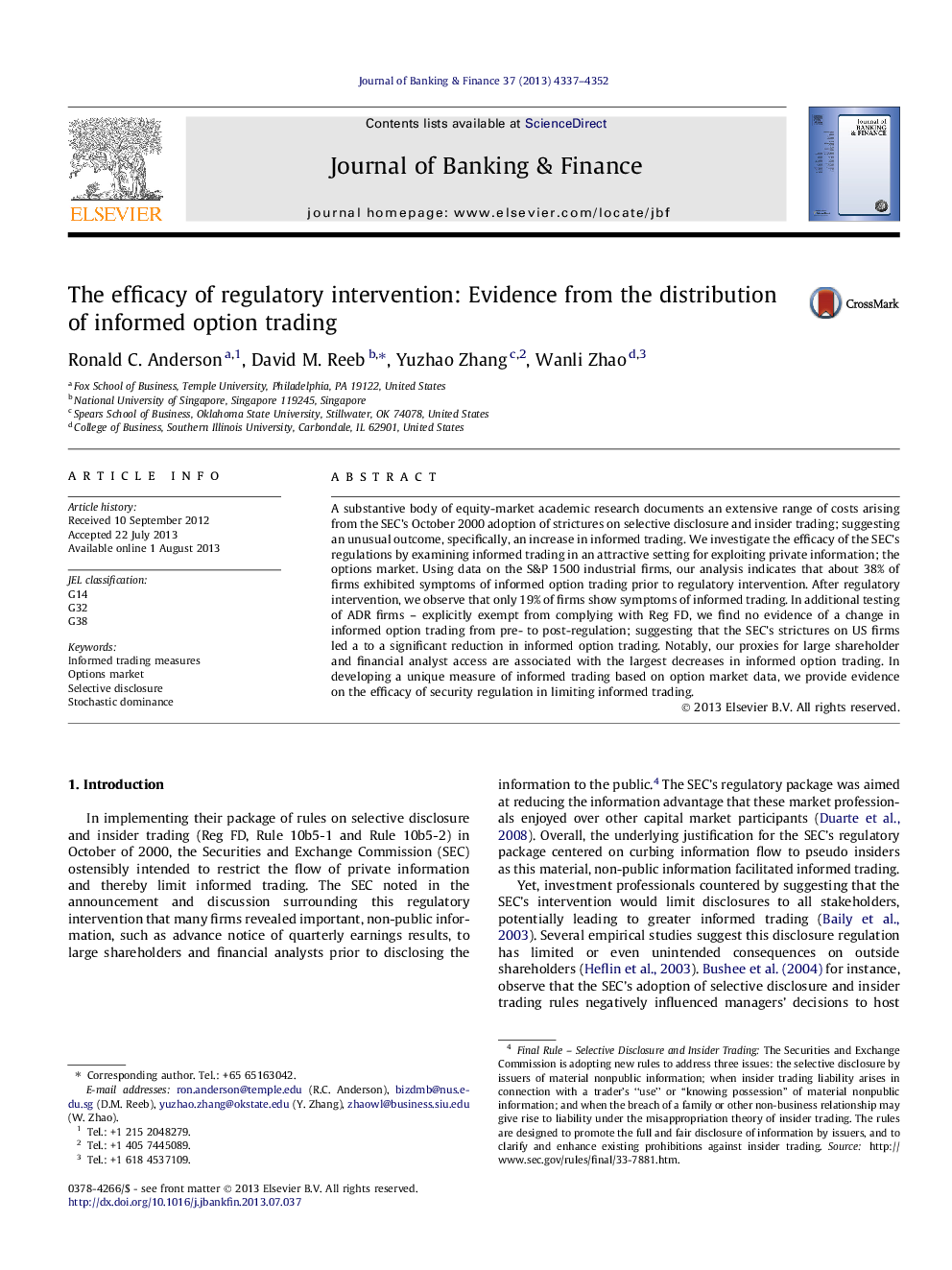| Article ID | Journal | Published Year | Pages | File Type |
|---|---|---|---|---|
| 5089160 | Journal of Banking & Finance | 2013 | 16 Pages |
Abstract
A substantive body of equity-market academic research documents an extensive range of costs arising from the SEC's October 2000 adoption of strictures on selective disclosure and insider trading; suggesting an unusual outcome, specifically, an increase in informed trading. We investigate the efficacy of the SEC's regulations by examining informed trading in an attractive setting for exploiting private information; the options market. Using data on the S&P 1500 industrial firms, our analysis indicates that about 38% of firms exhibited symptoms of informed option trading prior to regulatory intervention. After regulatory intervention, we observe that only 19% of firms show symptoms of informed trading. In additional testing of ADR firms - explicitly exempt from complying with Reg FD, we find no evidence of a change in informed option trading from pre- to post-regulation; suggesting that the SEC's strictures on US firms led a to a significant reduction in informed option trading. Notably, our proxies for large shareholder and financial analyst access are associated with the largest decreases in informed option trading. In developing a unique measure of informed trading based on option market data, we provide evidence on the efficacy of security regulation in limiting informed trading.
Related Topics
Social Sciences and Humanities
Economics, Econometrics and Finance
Economics and Econometrics
Authors
Ronald C. Anderson, David M. Reeb, Yuzhao Zhang, Wanli Zhao,
